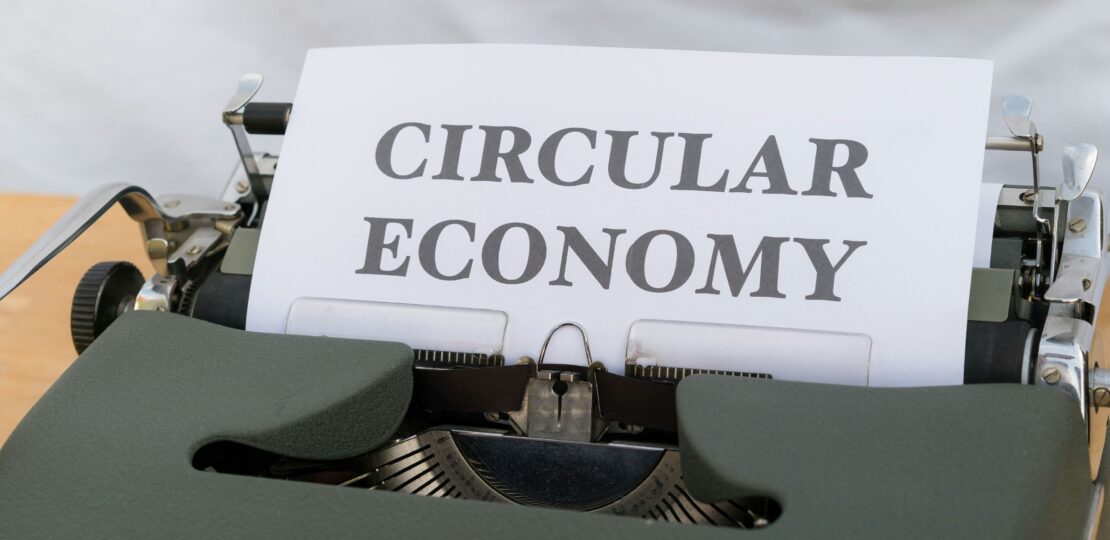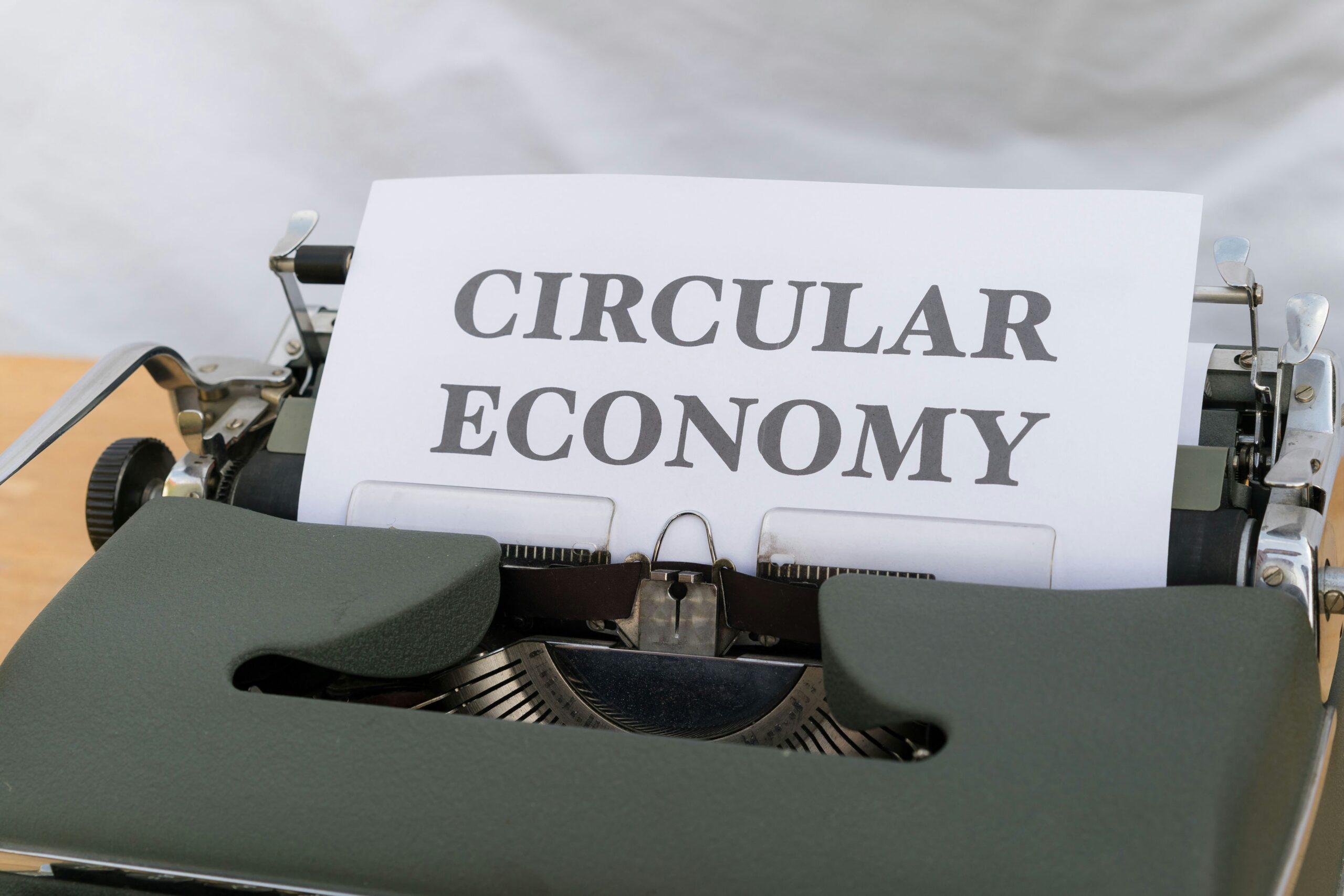Exploring Circular Economy Models in Online Retail: A Sustainable Future
September 30, 2025 | by qqvmedia.com


Understanding Circular Economy in Retail
The concept of circular economy represents a transformative approach to economic activity, particularly within the retail sector. Unlike traditional linear models, which follow a straightforward pathway of ‘take, make, dispose’, circular economy challenges this paradigm by promoting a more sustainable cycle of resource use. By emphasizing principles such as recycling, reusing, and refurbishing, a circular economy seeks to minimize waste, reduce resource consumption, and prolong the lifecycle of products.
In essence, the circular economy is predicated on the idea of designing out waste and pollution, keeping products and materials in use, and regenerating natural systems. This approach is especially pertinent in the context of online retail, where consumer behavior and fast-paced delivery services create significant waste and environmental challenges. The adoption of circular principles can lead not only to environmental benefits but also to economic opportunities for retailers who can innovate their business models and engage customers in sustainable practices.
A key contrast between linear and circular models lies in their core methodologies. While linear approaches focus on short-term gains from resource extraction and consumption, circular economies view resources as part of an ongoing loop, where the aim is to extract maximum value while minimizing resource input and waste. This shift is increasingly vital as global pressures such as pollution, climate change, and resource depletion push industries—particularly online retail—toward more sustainable operations. By integrating circular economy principles, retailers can enhance their resilience, foster customer loyalty, and contribute positively to societal goals.
Benefits of Circular Economy Models for Online Retailers
The implementation of circular economy models in online retail offers several significant advantages that can enhance sustainability and foster long-term growth. One of the primary benefits is the increased focus on environmental responsibility. By prioritizing the reuse and recycling of materials, online retailers can reduce their waste output, ultimately minimizing their environmental footprint. This commitment to sustainability resonates with a growing number of consumers, who now actively seek eco-friendly options when making purchasing decisions.
In addition to improved sustainability, adopting circular economy principles can lead to substantial cost savings through enhanced resource efficiency. By re-evaluating supply chains and embracing practices such as product refurbishment and recycling, retailers can lower operational costs associated with raw materials and waste management. These cost reductions not only bolster a retailer’s bottom line but also provide opportunities for competitive pricing, which can attract a larger customer base.
Furthermore, as consumers increasingly align their values with eco-conscious brands, improved brand loyalty emerges as another key advantage. Companies that openly commit to sustainable practices can cultivate deeper connections with their audience, resulting in increased customer retention and repeat purchases. For instance, brands like Patagonia and IKEA have successfully integrated circular economy practices into their business models, demonstrating that consumers are willing to support companies that align with their environmental values.
Finally, the transition to circular economy models can spark innovation within the online retail sector. As retailers develop new methods for extending product life cycles and promoting sustainable practices, they often explore creative solutions that can lead to the development of novel products or services. This innovative spirit not only sets companies apart in a competitive landscape but also contributes to a sustainable future, encouraging a shift in industry standards.
Challenges in Implementing Circular Economy Practices
The transition to circular economy models within online retail presents a distinctive set of challenges that must be navigated carefully. One of the most significant hurdles is supply chain redesign. Traditional linear supply chains are typically optimized for efficiency, focusing on a ‘take-make-dispose’ approach. In contrast, a circular economy necessitates the rethinking of these processes to enable resource recirculation, which may involve reconfiguring relationships with suppliers, manufacturers, and logistics providers. This transformation can incur substantial disruption and require substantial time and resources to implement effectively.
Moreover, consumer education regarding sustainability is essential yet challenging. Many consumers may not fully understand the benefits of circular economy practices or may remain resistant to changing their purchasing behaviors. Online retailers must actively educate their customers on the advantages of buying recycled products, returning used items for refurbishment, or participating in take-back programs. This educational initiative requires a concerted effort involving marketing strategies that effectively convey the value of sustainability and the role customers play in fostering a circular economy.
Additionally, investment costs pose a significant barrier. Shifting to circular practices often demands considerable upfront capital for technologies, infrastructure, and staff training. Retailers must evaluate the trade-off between the costs of implementing these changes against the long-term savings and environmental benefits they can achieve. Sometimes, the initial financial burden can deter businesses from pursuing circular initiatives.
Lastly, collaboration across industries is paramount to foster a holistic approach to circular economy models. Retailers may find it difficult to align with other stakeholders, including manufacturers, logistics providers, and even competitors. Establishing shared goals and creating networks of collaboration can be a daunting but necessary step to facilitate the deeper integration of sustainable practices in retail. Addressing these challenges not only supports the successful adoption of circular economy principles but also encourages further investment in sustainable initiatives.
Future Trends in Circular Economy Models for Online Retail
The online retail landscape is experiencing significant transformation as businesses increasingly adopt circular economy models. These models aim to minimize waste and promote sustainability, driving several emerging trends and innovations. A key trend is the integration of advanced technologies such as artificial intelligence (AI) and blockchain, which are enhancing the efficiency and transparency of circular practices. AI can optimize inventory management, enabling retailers to better understand product lifecycles and consumer behaviors, leading to more informed decisions that reduce overproduction and waste. Meanwhile, blockchain technology facilitates secure tracking of products, from production to end-of-life, ensuring accountability and trust in the supply chain.
Additionally, the rise of subscription services and rental models represents a substantial shift in consumer behavior. These models allow customers to enjoy products without the long-term commitment associated with traditional ownership. For instance, clothing rental services and subscription boxes have gained popularity, reflecting a growing preference for access over ownership among consumers. This shift not only reduces the demand for new products but also encourages retailers to manage their resources more efficiently, further supporting the principles of a circular economy.
Moreover, consumers are increasingly demanding transparent and sustainable practices from online retailers. As awareness of environmental issues grows, shoppers are starting to favor brands that prioritize sustainability and ethical practices. Retailers that successfully communicate their commitment to circular economy principles, such as using recycled materials or implementing take-back schemes, are likely to capture a loyal customer base keen on making responsible purchasing decisions.
Looking ahead, these trends are poised to redefine online retail. The adoption of circular economy models will not only enhance the shopping experience but will also foster a more sustainable society. By embracing these innovations, retailers can mitigate their environmental impact while meeting consumer expectations, ultimately contributing to a healthier planet for future generations.
RELATED POSTS
View all


